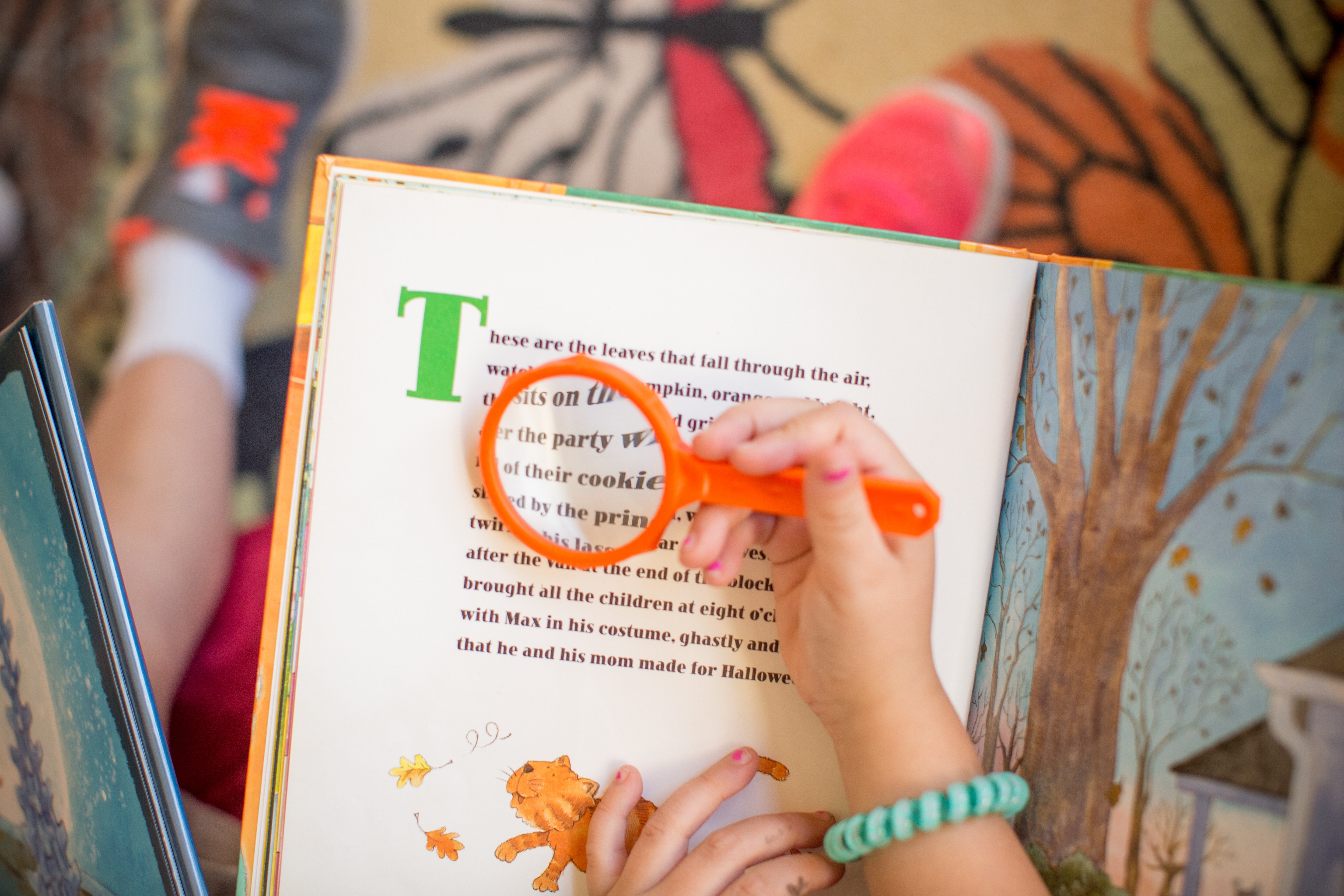5 Ways to Instill a Love of Reading in Your Child

Your bedtime book club acts as nightly bonding time with your child, but like any parent, you can’t help but wonder if you’re doing everything you can to tee your kid up for a lifelong love of learning. Do you really have to open up Good Night Moon yet again? And when should you take over narrating? We sat down with the early childhood education experts from Episcopal Academy for their advice.
1. Allow your child to read the same story over and over (and over).
It’s time for bed and the pick is in — looks like you’ll be reading her favorite book for the umpteenth time. While you inevitably know every page by heart, it’s important that your young reader does too. That kind of repetition helps familiarize children with basic grammatical structure and improve their self-esteem when it comes to reading. “You want them to be confident,” says Jackie Berry, a literacy coach at Episcopal Academy. “They will tire of it at some point, and some take longer than others, but as long as they’re wanting to do it and enjoying it, let them read it as many times as they want.”
2. Let small slipups slide.
You’re eager to watch your child sound it out — but how should you jump in with corrections without derailing his or her confidence? A good rule of thumb is to speak up when a mistake changes the meaning of the story, Berry says. It’s okay to let minor errors go. This will help ensure a stress-free and enjoyable experience for your child.
3. Don’t slack on your narrating duties.
Even if your young learner does master a few books on his or her own, it’s important for parents to continue reading aloud to their kids. “Listening comprehension is usually much, much higher than kids’ comprehension on books that they can decode on their own,” Berry says. ‘When they’re able to listen to stories that are “above” where they’re reading, they are given access to so many more concepts and ideas.’
4. Pose questions about what you’ve read.
An intense grilling isn’t necessary, but throwing out some thought starters after sharing a chapter together can get kids engaged and build on their reading and writing skills. “Get children to make connections between the book and other books that they have heard or read,” suggests Jennifer Rea, a kindergarten teacher at Episcopal Academy. ‘Talk about making connections to experiences that they have had, so, “Have you ever felt like this?”’
5. Relax and have fun.
Ultimately, reading should serve as a fun, positive experience for the both of you. There’s no need to over formalize it. Even if progress isn’t unfolding the way you may expect, your child will get to where they need to be eventually. “Parents shouldn’t get anxious or focus too heavily on their child’s progress,” says Dr. Terrence Malone, head of Episcopal Academy’s Lower School. “If you have concerns, talk with your child’s teacher. They will have great tips and ideas for helping your child through their literacy journey.”
Teachers at The Episcopal Academy’s Lower School are committed to cultivating a lifelong love of reading and learning. Schedule a visit today to learn more.
This is a paid partnership between Episcopal Academy and Philadelphia Magazine


